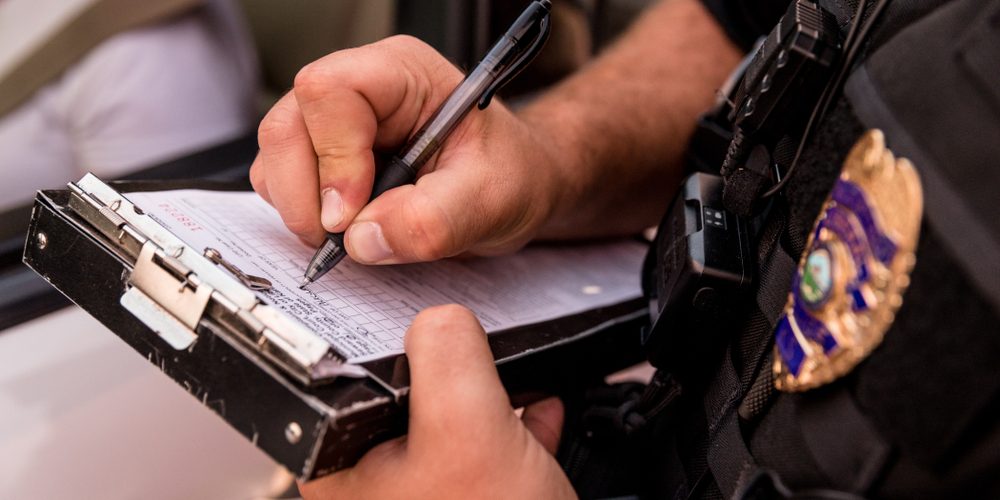In an era where the line between digital freedom and public safety is increasingly blurred, a recent event in Quang Binh Province, Vietnam, serves as a pivotal case study. A 54-year-old man was fined VND7.5 million (approximately $304) for using a live broadcast on social media to disclose the locations of DUI checkpoints. This incident not only raises questions about the balance between individual freedoms and collective safety but also highlights the evolving challenges faced by law enforcement in the digital age.
The Incident Unfolds
Discovery and Action by Local Authorities
On a day like any other, local authorities in Bo Trach District, Quang Binh Province, encountered an unusual digital event. A man was actively live-streaming the locations of traffic police DUI checkpoints along provincial road 561. This half-hour digital broadcast was designed to inform viewers about law enforcement activities aimed at curbing drunk driving—a noble cause turned controversial.
Upon identifying the broadcaster, the police took swift action, penalizing him for “collecting, processing, and using information of an organization or individual, either without consent or for wrongful purposes.” This decisive move underscores the gravity with which law enforcement views the misuse of digital platforms to potentially undermine public safety initiatives.
The Legal and Ethical Quagmire
The heart of the matter lies in the complex interplay between the right to freedom of expression and the societal imperative to ensure public safety. The man’s live stream, although possibly intended to alert fellow citizens to perceived injustices or inconveniences, inadvertently posed a risk to the very fabric of public safety measures designed to protect the community from the dangers of drunk driving.
The Broader Implications
The Dangers of Circumventing DUI Checkpoints
The rationale for DUI checkpoints is multifaceted:
- Deterrence: The mere presence of checkpoints serves as a deterrent to potential drunk drivers, who may reconsider their decisions knowing the risk of apprehension is high.
- Detection: Checkpoints enable the direct detection and apprehension of offenders, thereby removing immediate threats from the road.
- Education: They serve as a public reminder of the dangers of drunk driving and the seriousness with which it is treated by the law.
Informing potential offenders of checkpoint locations undermines these objectives, potentially increasing the likelihood of accidents caused by impaired driving. This act of digital interference not only poses a direct threat to public safety but also raises ethical concerns about the responsibilities of social media users.
Navigating the Digital Age: Law Enforcement’s Challenge
The Quang Binh incident exemplifies the challenges that law enforcement agencies face in leveraging digital tools while combating their misuse. The digital age offers unprecedented opportunities for real-time communication and community engagement. However, it also requires regulatory frameworks that balance the benefits of these technologies with the need to protect public safety and privacy.
Legal Frameworks and Public Safety
In response to incidents like the one in Quang Binh, authorities must navigate a delicate balance between enforcing the law and respecting individual rights. This balance is crucial in maintaining public trust and ensuring that efforts to safeguard communities do not inadvertently infringe on freedoms. The fine levied in this case serves as a reminder of the legal boundaries in place to protect both individual and collective interests.
Lessons and Reflections for the Future
The Role of Digital Citizenship
The incident raises important questions about digital citizenship and the ethical use of social media. Users must recognize their responsibility to contribute positively to their online communities and consider the impact of their actions on public safety and well-being.
Educating the Public on DUI Laws
For platforms like 1800DUILaws.com, which serves as an educational resource on DUI law and offers attorney matching services for DUI charges, such incidents underscore the importance of their mission. Educating the public about the legal and ethical considerations surrounding DUI checkpoints and the consequences of impaired driving is crucial.
- Awareness: Increasing awareness of the dangers and legal ramifications of drunk driving.
- Legal Guidance: Providing accessible legal guidance to those facing DUI charges.
- Advocacy: Advocating for responsible behavior and informed decision-making among drivers.
What You’ve Learned
The Quang Binh livestream incident serves as a compelling example of the challenges and opportunities presented by the digital age. As society navigates these complex waters, the lessons learned from such cases will be invaluable in shaping the future of digital citizenship, law enforcement, and public safety. The balance between individual freedom and collective security remains a pivotal concern, requiring ongoing dialogue, education, and adaptation to the ever-evolving digital landscape.








